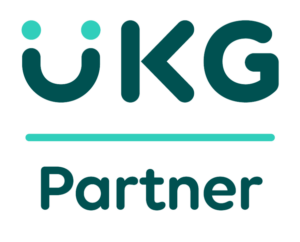It is not a secret that compensation plays an integral part in employee engagement. How do you get maximum effort and production out of your staff? By designing a compensation plan that truly motivates and empowers your team to help the company grow.
With the competition for recruiting and retaining top talent heating up, figuring out a way to keep your best people motivated and productive at work is one of the top priorities for employers. Here are 10 tips to create a compensation plan your employees will love to work hard for:
Identify your compensation strategy and philosophy. What is your business goal for the next five years? Is it to acquire new customers, increase profit, or to maximize growth? Design your compensation plan to support that strategy. What you value as a management team should be what your employees’ value, too.
Assess the marketplace. Prospective and current employees are intelligent when it comes to base pay & benefits for specific roles. They have done their research on what base pay is fair, and what perks are trending in the industry. Have you? Without knowing what your potential employees could receive at other firms, you won’t know how to position your own. Use online tools like GlassDoor.com or a LinkedIn forum for research.
Long vs Short Term Bonus Plans. Providing both long-term and short-term goals should avoid conflicts that might end up motivating employees to make a large personal bonus in the short-term, while neglecting long-term company goals that have less immediate gains. A classic example of this is when a salesman signs a client that is a bad fit for the company in order to hit a monthly quota.
Include merit increases. Whether periodic reviews at your company are scheduled annually, quarterly, or otherwise – employees appreciate the opportunity for merit increases. The pay increases should provide a higher percentage for top performers, while keeping up with industry trends, performance, inflation and living costs.
Provide crystal clear rules. Employees on commission or stringent merit increases appreciate a simplified pay structure. Making sure that the employee understands their pay structure (whether multi-faceted or not) is the key to keeping your team motivated and trusting.
Make sure goals are achievable. Rewards need to not only be clear, but also achievable. If a salesperson or manager’s goals are unattainable, that is a demotivating factor. Setting goals that are in the interest of both parties, and also fair, is a win-win.
What are the values of your team? Consider this question when working on your firm’s compensation plan. Your team members might not value money most (though let’s get real – they probably do.) Interviews and surveys can help retrieve this information. Things like health benefits, growth opportunities, and job satisfaction are also important aspects of creating a competitive plan.
Equity or not? Consider if your particular business has the ability to share equity (either as a private firm or public). Sharing in the profits (or eventual sale) of a company is a motivating factor – as the company’s success is also the success of the stockholder. For some early-stage companies, profit and equity sharing can be a key tool to hiring and retaining top talent.
The benefit of benefits. Subsidizing health insurance (including dental and vision coverage) for employees is important for motivation. Also, a popular perk is an employer-offered 401K plan with company matching contributions. Don’t fall behind by ignoring side benefits beyond salary.
Eliminate the need for spreadsheets. Implementing, tracking, and tweaking your compensation system is impossible to do via spreadsheets, where errors are commonplace and costly. Implementing a cloud-based system like COMPOSE by Decusoft can help make complex variable pay programs a breeze.




